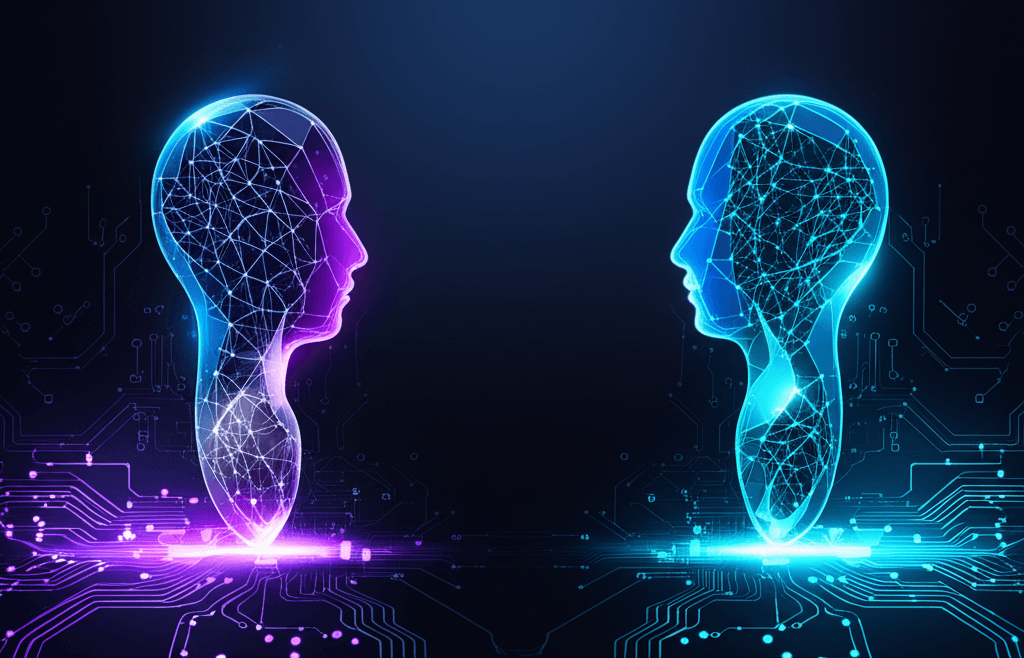Anthropic's Claude Opus 4.1 Elevates AI Coding, Challenges OpenAI's Enterprise Lead
Anthropic's Claude Opus 4.1 delivers a preemptive strike, escalating the AI rivalry with OpenAI via enhanced enterprise and coding prowess.
August 5, 2025

In a strategic move that escalates the rivalry in the artificial intelligence sector, Anthropic has released Claude Opus 4.1, an upgraded version of its most advanced model. The release is widely seen as a preemptive strike against OpenAI's anticipated GPT-5, signaling a new phase of intense competition focused on specialized capabilities, particularly in the enterprise and coding arenas. This new iteration from Anthropic is not just an incremental update; it represents a significant leap in performance for tasks requiring complex reasoning, coding, and autonomous operation, positioning the company to challenge its primary competitor's dominance. The new model is available to paid Claude users and through its API, Amazon Bedrock, and Google Cloud's Vertex AI, with pricing remaining the same as its predecessor.[1][2]
A central focus of the Claude Opus 4.1 release is its enhanced proficiency in software engineering and what the company calls "agentic" tasks, where the model can autonomously perform complex, multi-step operations.[2] Anthropic reports a score of 74.5% on the SWE-bench Verified benchmark, a notable improvement from the 72.5% achieved by the previous Claude Opus 4 model and significantly higher than the reported scores for competitors like Gemini 2.5 Pro.[3][4][5] This benchmark evaluates an AI's ability to resolve real-world GitHub issues, demonstrating a tangible impact on developer productivity.[5] Early adopters and partners have corroborated these claims. GitHub noted particular improvements in multi-file code refactoring, while Japanese tech giant Rakuten Group praised the model's precision in identifying necessary corrections within large codebases without introducing new bugs.[1][6] These advancements are crucial as enterprises increasingly look to integrate AI into their core software development workflows. The model's ability to handle complex problems with greater accuracy and attention to detail addresses a key demand in the enterprise market for reliable and efficient AI solutions.[2]
The release of Claude Opus 4.1 is set against a backdrop of escalating tensions between Anthropic and OpenAI. Recently, Anthropic revoked OpenAI's access to its Claude API, alleging that OpenAI engineers were using the platform to benchmark and potentially reverse-engineer features for the development of competing models, including the forthcoming GPT-5.[7][8] Anthropic contended this was a direct violation of its terms of service, which prohibit using their models to train competitors.[8][9] OpenAI responded by stating that evaluating other AI systems is a standard industry practice for benchmarking and safety improvements, expressing disappointment with the decision.[9] This "API-gate" controversy highlights a shift in the AI landscape from a more open, collaborative environment to a fiercely competitive one where companies are aggressively protecting their technological advantages.[10][11] The incident underscores the strategic importance of proprietary data and model capabilities in the race for AI supremacy.
The strategic positioning of Claude Opus 4.1 appears to be a direct challenge to OpenAI's stronghold, particularly in the lucrative enterprise market. While OpenAI's ChatGPT dominates the consumer space, recent reports suggest Anthropic has been making significant inroads with business users.[12][13] A report from Menlo Ventures indicates that Anthropic has overtaken OpenAI in enterprise market share by usage, holding 32% compared to OpenAI's 25%.[12][13] This shift is largely attributed to the superior performance of Anthropic's models on specialized tasks like coding, where it commands a 42% market share, more than double OpenAI's 21%.[12] The focus on enterprise needs, such as reliability, safety, and the ability to handle complex, multi-step workflows, has resonated with businesses seeking to deploy AI in mission-critical applications.[13][14] While Claude Opus 4.1 maintains a higher price point than some competitors, its enhanced performance is presented as a key differentiator for companies willing to invest in cutting-edge capabilities.[2][5]
In conclusion, Anthropic's launch of Claude Opus 4.1 is a multifaceted strategic play that extends beyond mere technological advancement. It is a clear declaration of the company's intent to compete at the highest level, with a specific focus on the enterprise and developer markets where performance and reliability are paramount. By delivering a model with demonstrably superior coding and reasoning abilities, Anthropic is not only attempting to preempt the impact of OpenAI's GPT-5 but is also solidifying its growing reputation as a leader in enterprise AI.[3][13][15] The recent tensions over API access further signal a new, more combative era in the AI industry, where technological moats are fiercely guarded.[10] As Anthropic has already teased that "substantially larger improvements" are forthcoming, the AI community is watching closely to see how this strategic release will shape the next chapter of innovation and competition in this rapidly evolving field.[1][4]
Sources
[4]
[7]
[8]
[9]
[10]
[11]
[12]
[13]
[14]